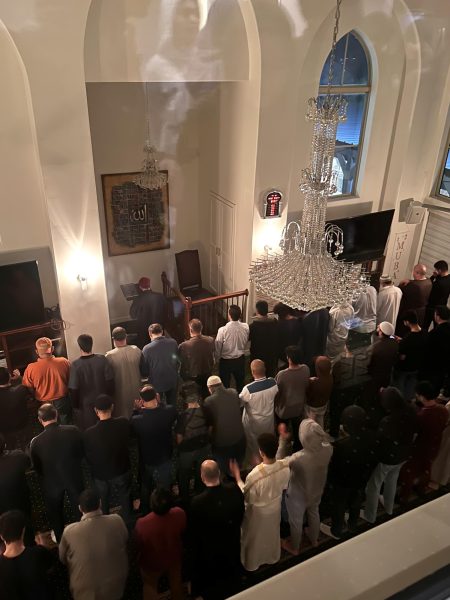Europe’s Winters
January 29, 2016
In a word, the Middle East is chaotic. Egypt, after only the briefest period of hope and freedom, has sunk back into a military dictatorship. Libya is mired in another civil war; Iraq is practically three separate countries, and no one can forget the endless, all-consuming void that Syria has become. Only Tunisia, the country where the series of revolutions began, has appeared to escape this black hole. The Arab Spring, in short, has become an Arab Winter.
To both the observer and the participant, this disaster is yet another example that democracy will never spread into the developing world. But Westerners should note their own struggles with authoritarianism. In fact, it wasn’t until the late 20th century that democracy became a fixture in Europe.
Let’s start with the Arab Spring’s namesake, the Prague Spring. Prior to the late 1980s, Eastern Europe was under the iron rule of Soviet-sponsored communist dictators. But in 1968, hopes for reform in the country of Czechoslovakia were raised when Alexander Dubcek became the First Secretary of the Communist Party. Dubcek immediately began a program of liberal reforms termed “socialism with a human face” that increased freedom of speech, the press, and movement. Censorship was ended, party members were able to vote based on their own opinions rather than government policy, and trade unions could argue for increased benefits for their members. While popular in Czechoslovakia itself, the reforms frightened the country’s neighbors, who were afraid that their own citizens may demand the same freedoms. After negotiations failed, the Warsaw Pact nations, under Soviet direction, invaded Czechoslovakia on Aug. 20, 1968. The authority of Moscow was restored, reforms were reversed, and it would take another two decades before authoritarianism was ended.
While the revolutions of 1989 were an enduring success, Europe has faced even bigger disappointments than the Prague Spring. The revolutions of 1848 provide an even clearer parallel to the Arab Spring. The “Springtime of Nations” as it is referred to as by historians, began, as so many revolutions do, in France. At the beginning of 1848, France was a constitutional monarchy with a legislature that was elected by only 0.5 percent of the adult population. But in February of that year, protesters, upset at the lack of political reform, ousted the king, Louis-Phillippe, and instituted the Second French Republic. However, the revolution quickly grew more radical, eventually leading to a failed worker’s uprising in June. Louis-Napoleon Bonaparte, nephew of the famous Little Corporal, was elected President, and in a twist absolutely everyone should have foreseen, dissolved the National Assembly in 1851. The Second French Empire was declared with Napoleon III, as Bonaparte was now titled, as emperor the following year. The pattern that would so clearly reappear in the Middle East in the early 21st century had been completed.
But, in a further foreshadowing of the continent-wide chaos of the Arab Spring, revolution was not isolated to France. By the end of 1848, the wave of revolutionary fervor had spread to Prussia, Austria, and Italy. Nevertheless, the conservative order proved resilient; in Austria, the monarchy was able to weather the storm; in Berlin, King Frederick William IV attempted to use the revolution to form a union among German princes, but was forced to abandon this effort by Austria and Russia. The democratically-elected Roman Republic under Giuseppe Mazzini lasted only four months until an invasion by French forces put the Pope back into power. Conservatism won the day.
If these examples are too distant, in time or knowledge, for your liking, there are plenty of recent ones. Greece was ruled from 1967 to 1974 by a military junta; Spain didn’t begin it’s own transition to democracy until 1975, and even then it was nearly wiped out by a coup attempt in 1981. Even today, the dangers to democracy are ever-present- Poland’s populist government has recently been tinkering with its justice system, and the National Front, among their many faults, is too friendly to Russia for my liking. So next time you dismiss the Middle East as a hopeless case, dear reader, you should perhaps take a peek in your own backyard.
For further information on the events detailed in this article visit:
http://www.age-of-the-sage.org/history/1848/revolution_of_1848.html
http://www.lib.umich.edu/soviet-invasion-czechoslovakia/pg1.html


















